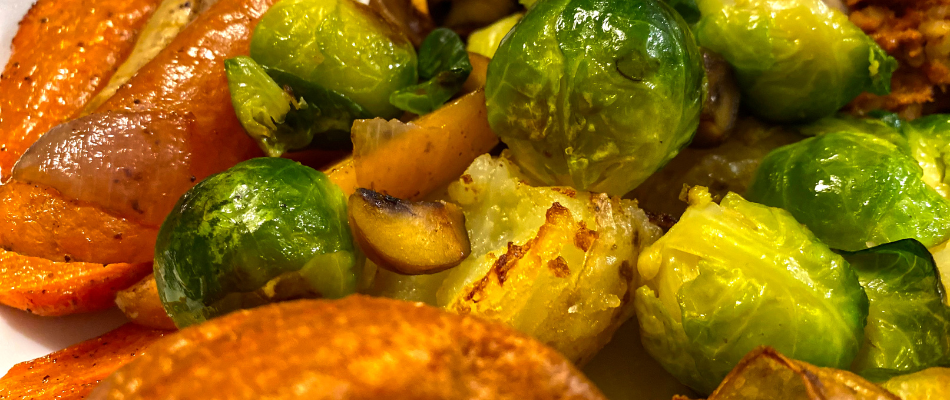Winter is such a snuggly time of the year… It does, however, cause us to retreat indoors and revert to comfort food – food that makes us feel warm and comfy when the environment around us is a little bit more difficult to live in – evolution right? This form of hibernation is tempting as comfort food is usually linked to sugar and starch. Not surprising though (back to evolution) as these were the foods our ancestors would rely on to survive the winter months when it was more difficult to gather resources. But we, unfortunately, don’t have that excuse – our resources are available all year round.
Winter = weight gain, right? WRONG – it’s a myth. Gaining weight in winter is not definite and it does not happen to everyone, but let us indulge in possible reasons why you may gain weight during the winter times and offer some solutions to these ‘reasons’.
Increased sleep and decreased physical activity
When it is nice and warm outside and the sun is up early – it is easier to get out of bed and jump into action. In winter, not so much, our physical activity (exercise) often decreases. This is not necessary – there are many things we could do to ensure that we stay active in the winter months (we discussed these in the previous article).
Comfort foods
Aaah, a huge bowl of stew with all the trims and blessings that brings… Comfort foods are usually heavier and therefore contain more calories than crispy and crunchy fresh foods. We eat comfort food because it helps raise body temperature. Or we drink hot beverages (like lattes or hot chocolate) to get the same effect. Problem is, these beverages contain sugar or added fats and oils which make us feel better or cosier.
The solution to this is quite easy – find healthy versions of comfort foods. Let us have a look at some.
Soups and stews: The best way to ensure you eat all the vitamins and minerals is to include them into one dish – a hearty soup or stew. Add winter veggies, healthy carbohydrates (like beans or pulses) and protein to the dish and you have reached your goal. You don’t even have to add additional fats to your dish because nothing needs to be fried – everything is beautifully slow-cooked until perfection.
Be careful not to get into the habit of starch-dumping when it comes to preparing these dishes – either in preparation (adding pasta or potatoes to your broth) or whilst eating the dish (dunking a huge slide of white bread into the soup or lathering the plate with white rice before you add the stew). If you want to eat bread with your soup – eat a slice of wholewheat bread or seed loaf. That will do the trick just as well.
Oatmeal: Yes, back to basics, ladies and gentlemen. Oatmeal is a hearty porridge and a slow-releasing starch which will keep you filled for longer. If you need to, add nuts and dried fruit for taste or a teaspoon of honey – healthier alternatives than sugar and chocolate chips.
Root vegetables: Carrots, turnips, sweet potatoes. These veggies are rich in nutrients like vitamin C & A, potassium, calcium and fibre. They are perfect for soups and stews. Try to eat mashed sweet potatoes with your stews rather than a bowl of white rice.
Yoghurt and dairy products: Probiotics, calcium and vitamin D – the cornerstone of winter wellness. Add these products (or more of these products) to your diet in winter or fermented foods, like sauerkraut, kefir and kimchi – anything that will ensure healthy gut microbiota.
You are extra sleepy
Because we spend more time indoors we don’t receive as much love (vitamin D) from the sun. Because of that, we feel more sleepy and less motivated to be physically active. A vicious cycle – one gives birth to the next and the next is because of the one…
Change your workout routine in winter to keep active (or use any of the suggestions made in the previous article) or find new alternative workouts that excite you (next week’s article will spend some time on this topic).
Increased metabolism
There is great research which supports the fact that our metabolism increases during the winter months to help us stay warm (by burning more energy). If this is so, surely we should be losing weight rather than gaining it during the winter months? One would think so, but unfortunately, we ‘misunderstand’ these signals from our bodies and think it is telling us to eat more because the body has higher energy demands. You can control this – you might feel hungrier but if you remind yourself that the metabolism is revved up to keep us warm – don’t automatically eat more, eat food that will release energy slower.
Less fresh food
True, fruits and vegetables are seasonal and finding fresh berries, for example, is not that easy (and when you do, they don’t taste the same). There is, however, a simple solution to this in our modern-day lives – frozen fruit and veggies. Yes, stock up. We cook different dishes in winter anyway and frozen alternatives are just as good. It might also allow you to try new recipes and be a bit more adventurous.
Layers and layers of clothing
Who does not have that favourite house sweater which you ‘live’ in during winter? You know the one I’m talking about. We layer in winter – as we should – to protect us from the cold. But because of this, the visual cues of weight gain are much less obvious than in summer. What you don’t see doesn’t hurt right?
Caution ladies and gentlemen – winter is a maximum of three months. Don’t let the ‘out-of-sight-out-of-mind-trap’ catch you. The best way to do this – is gym clothes. So, see, if you stick to your exercise routine those pesky pounds will be well gone BEFORE you try to fit into your favourite summer clothes.
Stick to your exercise routines, seek healthy comfort foods, and keep your mind focused and winter weight gain traps will not become part of your story. You deserve your health – keep working at it – no matter the weather.







